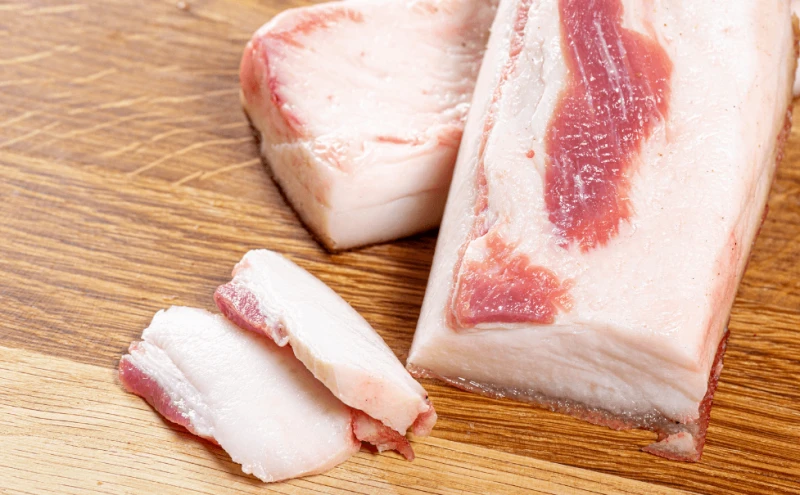Animal fat texture and taste is extremely hard to replicate in plant-based meat. Here’s how next-gen alt meat companies are responding
Animal fat texture and taste is extremely hard to replicate in plant-based meat. Here’s how next-gen alt meat companies are responding


Replicating fats in plant-based meat is an important part of getting its texture right. A range of ingredients, including a variety of oils and even coconut fat, can be used to do this.
Substituting fat in vegan products “allows us to create plant-based alternatives that closely resemble the taste and texture of traditional animal-based products,” Sergio Pinto, CEO of Brazil-based ingredients company Cellva Ingredients, told FoodNavigator. “This is crucial for consumer acceptance and adoption of plant-based diets.”
ÄIO, an Estonia-based startup focusing on creating substitutes for palm oil and animal fats, uses its encapsulated oils and fats as ingredients to substitute animal fat. It avoids palm oil as stringently as animal-based fats in its products.
“As palm oil is really a “no-go” them most of the product developers as well as we are using in our plant-based experiments rapeseed oil in combination with deodorized coconut fat”, Mary-Liis Kütt, Chief Innovation Officer at ÄIO, told FoodNavigator.
“These traditional vegetable oils are mostly used as a control. For the novel product development we are using our own produced encapsulated oil as well as RedOil and Buttery fat.”
Finding a replacement for palm oil, which when not sustainably sourced can have a negative impact on the environment, is as central to ÄIO’s goals as replacing animal fat itself.
This is an excerpt. Read the original post here

 | Videos | More... |

Video: Nuclear energy will destroy us? Global warming is an existential threat? Chemicals are massacring bees? Donate to the Green Industrial Complex!
 | Bees & Pollinators | More... |

GLP podcast: Science journalism is a mess. Here’s how to fix it

Mosquito massacre: Can we safely tackle malaria with a CRISPR gene drive?

Are we facing an ‘Insect Apocalypse’ caused by ‘intensive, industrial’ farming and agricultural chemicals? The media say yes; Science says ‘no’
 | Infographics | More... |

Infographic: Global regulatory and health research agencies on whether glyphosate causes cancer
 | GMO FAQs | More... |

Why is there controversy over GMO foods but not GMO drugs?

How are GMOs labeled around the world?

How does genetic engineering differ from conventional breeding?
 | GLP Profiles | More... |

Alex Jones: Right-wing conspiracy theorist stokes fear of GMOs, pesticides to sell ‘health supplements’




 Viewpoint — Fact checking MAHA mythmakers: How wellness influencers and RFK, Jr. undermine American science and health
Viewpoint — Fact checking MAHA mythmakers: How wellness influencers and RFK, Jr. undermine American science and health Viewpoint: Video — Big Solar is gobbling up productive agricultural land and hurting farmers yet providing little energy or sustainabilty gains
Viewpoint: Video — Big Solar is gobbling up productive agricultural land and hurting farmers yet providing little energy or sustainabilty gains Fighting deforestation with CO2: Biotechnology breakthrough creates sustainable palm oil alternative for cosmetics
Fighting deforestation with CO2: Biotechnology breakthrough creates sustainable palm oil alternative for cosmetics Trust issues: What happens when therapists use ChatGPT?
Trust issues: What happens when therapists use ChatGPT? 30-year-old tomato line shows genetic resistance to devastating virus
30-year-old tomato line shows genetic resistance to devastating virus California, Washington, Oregon forge immunization alliance to safeguard vaccine access against federal undermining
California, Washington, Oregon forge immunization alliance to safeguard vaccine access against federal undermining The free-range chicken dilemma: Better for birds, but with substantial costs
The free-range chicken dilemma: Better for birds, but with substantial costs ‘You have to treat the brain first’: Rethinking chronic pain with Sanjay Gupta
‘You have to treat the brain first’: Rethinking chronic pain with Sanjay Gupta
